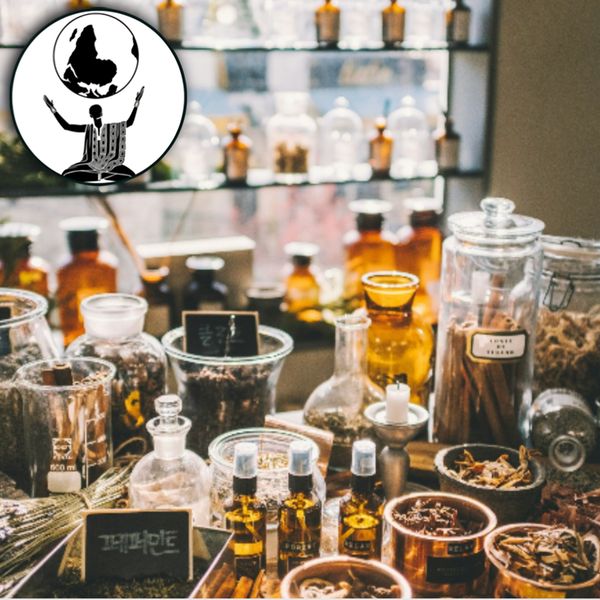Illness From Fragrances



Earth Talk | May 22, 2024 | Written By Rachel Naba
After a long day at the office, after we have been sucked dry and are mentally and physically exhausted, we get in our cars or on the train and head for home. We are tired and irritable, and the primary thing on our minds is to go home, eat dinner, and relax. We are longing for some quiet time and a good meal. Upon stepping into the front door, while removing our shoes, we wonder how long it will be before our family presents us with the first crisis. Suddenly, we notice a tantalizing, familiar scent in the air. As the scent brings vivid mental images of our favorite dinner, our mouths begin to water and shoulders begin to relax. We find ourselves smiling at the realization that our loved one, in an attempt to welcome us home and show their love, has prepared our favorite dinner. Our mood for the evening has been set - we are now looking forward to a delicious dinner and a pleasant evening - all from the scent of our favorite meal cooking a few rooms away. Yes, although it is least understood, our sense of smell is a very complicated one indeed.
American culture is obsessed with smell. Fragrance is added to so many products that the scent of an item can be a major consideration in which brand (or variety within a brand) we purchase. We buy perfumes and scented products without a second thought - shampoos, soap, lotion, cleaning products, foods, deodorants, and many other products contain fragrance. We love to scent our bodies and homes, and we feel it is a necessity to cover up or stop our natural body odors. All of these scents and fragrances are constantly flowing in the air around us, affecting our physical, mental, and emotional health. We consider these fragrances to be a normal part of our daily lives and personal care. We do not question their safety. We do not know that the FDA has very little control over these fragrances, which are almost exclusively synthetic, and most of us do not question the impact they have on our health. Meanwhile, fragrances drift in the air currents that surround us and accumulate in our bodies, making us increasingly sensitive to chemicals and carrying with them the potential to cause serious health problems.
Originally, fragrances consisted of oils and essences from natural sources, such as essential oils and deer musk. These scents are found in and obtained from nature and have been used for millennia for spiritual and medicinal purposes, and later for cosmetic uses. Their benefits and drawbacks have been well understood for thousands of years. Today, however, very few natural fragrances are used - over 90% of all fragrances are now synthetic copies of natural scents (as well as many that are not found in nature at all) made largely from petroleum. They are powerful synthetic chemicals and are used as combinations to create a desirable scent. One fragrance can contain as many as 600 different chemical ingredients! There are about five thousand different chemicals used in the fragrance industry, and many of these chemicals have not been properly tested.
The FDA does not require outside testing of fragrance chemicals, nor are they required to be tested at all before they reach the market. In fact, the formula of any particular fragrance is considered a trade secret, thus, its ingredients are not required to be revealed.
The fragrance industry is completely self- regulated, choosing which chemicals it will test and how they will be tested. The industry testing organizations (The Research Institute for Fragrance Materials and The International Fragrance Association) test only dermal (skin) and oral routes of exposure to the chemicals, ignoring systems and respiratory effects. They make recommendations about the chemicals that have been tested, but these recommendations are not binding and are not and cannot be enforced. In fact, the recommendations by these organizations are largely ignored. Furthermore, many chemicals may not be tested until the original patent expires (about twenty years.)
We are taught that if we want to be pretty, we must smell pretty. If we want to be successful, we must wear the scent of success. The perfume or cologne chemicals that we apply to our skin are not only absorbed and stored in fat tissue, but it is released into the air and is breathed into our lungs, our children's lungs, and our neighbor's lungs. While we think that our choice of personal care products affects only us, the residues are washed down drains and accumulate in our water supply. Because these chemicals are stored in the fat tissue of humans and animals, they have entered our food chain.
Many of the synthetic fragrances are considered sensitizers: chemicals that, over time, make an individual more and more sensitive to all chemicals. Our favorite scents are most likely forcing our bodies to become more reactive to chemicals in general, often causing symptoms much like allergic reactions and dermatitis. In fact, many perfumes contain more than three known sensitizing fragrance chemicals; every time we dab our pulses with our favorite scent, we are adding layer upon layer of powerful chemicals.
Fragrances are causing health problems for many individuals. They are the number one cause of adverse skin reactions to cosmetics and laundry products. Perfumes and fragrances are triggers for headaches, including migraines. They trigger asthma (the Louisiana State Medical Center found that one of every five people with asthma get attacks from exposure to perfume), COPD, sinusitis, rhinitis, bronchitis, and Multiple Chemical Sensitivity. They cause skin rashes and dermatitis. They can cause lethargy, depression, sneezing, anxiety, nausea, wheezing, inability to concentrate, convulsions, enlarged lymph nodes, liver damage, sore throat, cough, cancer, hyperactivity, tremor, seizures, neurotoxicity, decreased expiratory airflow velocity, fatigue, and birth defects. Some chemicals found in fragrances are designated as hazardous waste materials, meaning that they are dangerous and must be disposed of carefully and in designated places. Meanwhile, we are unknowingly applying these dangerous chemicals to our bodies and clothes, while the fragrance industry continues its roaring success.
MUSKS
Real musk is expensive and hard to obtain, while synthetic musks are cheap and easy to produce, thus, they are used commonly in many products. Musk xylol, musk ambrette, and musk ketone are very common synthetics. Musk ambrette has been used as a fragrance since before the 1920's and is often used in artificial flavorings for cherry, nut, spice vanilla, and mint. Most synthetic musks are neurotoxic and cause nerve damage and brain damage, including musk xylol and musk ambrette. Musk ketone has been largely found in breast milk and fat tissues. AETT is another synthetic musk that was found to be severely neurotoxic, AETT was patented in the 1950's and was not tested until 1975, when it was found to be extremely hazardous to human health. It caused severe brain damage as well as excessive motor activity, gait abnormalities, limb weakness, foot-drop, clonic- like movements, and weakness in mice. It also turned their skin and internal organs blue! The industry "voluntarily" discontinued use of this chemical after these results were made known, but there was no recall on products and the public was not informed.
COUMARIN
Coumarin was banned for use in food by the FDA because it caused liver damage in rodents. Yet coumarin is still used in fragrances (such as Joop by Wolfgang Joop), cosmetics, perfumes, and soap. It is a possible carcinogen and is absorbed through the skin at a rate of over 95%. Coumarin is also used commonly as an anticoagulant drug, preventing blood clots from forming in patients to whom it is prescribed. While the hospital requires a strict prescription and doctor's surveillance for this chemical, it is readily available in popular fragrances, You are absorbing a powerful anti- coagulant through your skin!
DIETHYL PHTHALATE (DEP)
This chemical is found in popular modem fragrances, such as Calvin Klein's Eternity. It has been shown to cause anterior pituitary adenoma, a tumor that can cause a disruption of the hormone that controls growth. It has also been shown to cause cancer in mice. This chemical is fat soluble and accumulates in body fat.
Television commercials advertise how nice our kitchens and bathrooms will smell after cleaning with a certain product. Every step our cats make in their litter boxes refreshes the air and keeps the area smelling flowery fresh. Magazine advertisements have succeeded in convincing us that we will be desirable and sexy only if our bodies have the sweet scent of perfume or cologne. We can play and sweat as long and as hard as we want, but our underarms will still smell baby-powder fresh. We buy the products We scent our bodies and our homes. Because fragrances easily become airborne, they linger and flow in the air inside our homes, cars, offices, and environment. The scent that we put on our bodies before we leave the house in the morning bombards those who work beside us at the office. This can be a serious problem that affects the health of many people. Look at the television and magazine advertisements closely. They promise that the smell of our laundry will make us better mothers and wives, and that the scent on our bodies will determine if we will be considered desirable and sexy to the opposite sex. Take notice of the numerous scents that surround you during your day - in the shower, on the street, while cleaning the kitchen, and in the office. Each of these chemical fragrances that usually go virtually unnoticed could be negatively affecting your health.